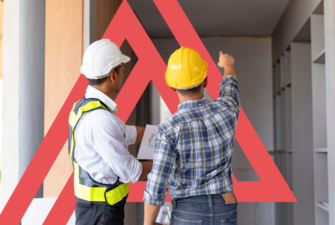
Tackling a problem from the wrong end?
The long-awaited New Homes Quality Board (NHQB) is consulting about its draft New Homes Quality Code and creating a New Homes Ombudsman to help buyers resolve faults in newly-built properties. These are welcome further steps towards stronger consumer focus in homebuilding, but quality problems really need to be tackled before they happen. The answer lies in how we build new homes.
Plans for an ombudsman service dedicated to defects in new homes were first announced in October 2018, so it’s been a long wait for details of the service and the Code it will enforce to emerge. Overseen by the New Homes Quality Board (NHQB), these changes aim to fill a gap in existing consumer protection.
Research by the House Builders Federation and NHBC showed that in 2017/18 over a third (34 per cent) of buyers said their new home had more problems than they expected. Forty-two per cent reported more than ten problems to their builder, and a quarter (26%) reported in excess of 16 problems. Most worryingly, these figures reflected a worsening trend since 2015.
What the Code says
The draft Code sets mandatory standards for developers including housing association and council developers who register with NHQB based on ten guiding principles, including fairness, safety, responsiveness, transparency, inclusivity, security and compliance. These support a series of practical steps for developers covering new home construction and sales, legal documents, inspection, after-sales, complaints and insolvency.
The Code is designed to protect vulnerable customers, prohibit high-pressure selling and give complainants a clear path to resolving problems with their builder, warranty provider and the new ombudsman. It sets standards for how quickly registered developers must acknowledge problems and put them right. The Board’s Chair, Natalie Elphicke MP, wants it to be “a step change” in fixing faults faster and more fairly.
It’s all reasonable stuff, but appears to start from the assumption that, as the UK strives to build the greater numbers and diversity of homes it needs, there will simply be a corresponding rise in defects, complaints and unhappy new homeowners. It doesn’t have to be that way.
Quality begins at home
I’ve seen enough wonky lintels, scruffy screeds and shonky brickwork at new developments to know that this issue needs tackling much further upstream. Even the best defects service and most efficient ombudsman can’t compensate for the skill shortages and patchy on-site supervision that often lead to post-completion faults. Mindful of the strict liability that eventually transfers to them, some of the housing association clients I work with now commission their own gas safety audits and compliance certification rather than rely upon what comes from the developer.
In the tough economic conditions since 2008 there’s been an exodus of older and more experienced tradespeople from the building industry, with a knock-on impact for the effectiveness of training and oversight available to apprentices and younger staff.
Construction has also become increasingly fragmented – as the number and range of sub-contractors’ vehicles parked outside every building site attests. So there’s more scope for errors and difficulties to fall between the cracks and become no-one’s responsibility: a recipe for occupier frustration and inconvenience.
The real answer to quality lies in a much more fundamental shift to the way we build homes. The leap of faith and level of investment required of anyone buying a new home are too vast to rely upon getting things right in cold, wet and muddy fields. The industry needs to treat homes as a precision, manufactured product, built to the same exacting tolerances we expect from our cars, computers and other essentials of contemporary life.
Factory-built homes and modern methods of construction are no longer new – and they too have taken a while to gain trust and momentum. But they have to be a big part of the answer. Expecting and letting problems happen, then trying to resolve them later just isn’t enough.
We need to secure quality throughout the homebuilding process, not wait until the end, where it’s the residents who pay the cost.

Chris Seeley
Director
Chris has a strong track record in sourcing, delivering and selling homes; strategic asset management; project and programme management; and in mentoring individuals and supporting teams to maximise their success. He is passionate about working with people and about the importance of building strong relationships with delivery teams, residents and stakeholders.
Chris has undertaken a wide variety of interim and project management roles across development-site sourcing, business development and project management as well as procurement and research projects.
News & Insights
Read the latest housing sector news, blogs, and commentary from ARK.

Kirsty Wells to join the team as Assistant Director
By Helen Scurr ·We are excited to announce a senior figure in the social housing sector will be joining our consultancy team. Kirsty …

Building Safety
By Luke Beard ·The deadline for registering an existing higher risk building (HRB) with the regulator and submitting the required key building information …

Are you ready for the Supported Housing (Regulatory Oversight) Act 2023?
By Nick Sedgwick ·If you are a supported housing provider, you need to be aware of the new regulations that are about to …
Subscribe to our newsletters for the latest industry insights
Our newsletters and reports will keep you updated on topical issues from the sector as well as what’s happening at ARK.
